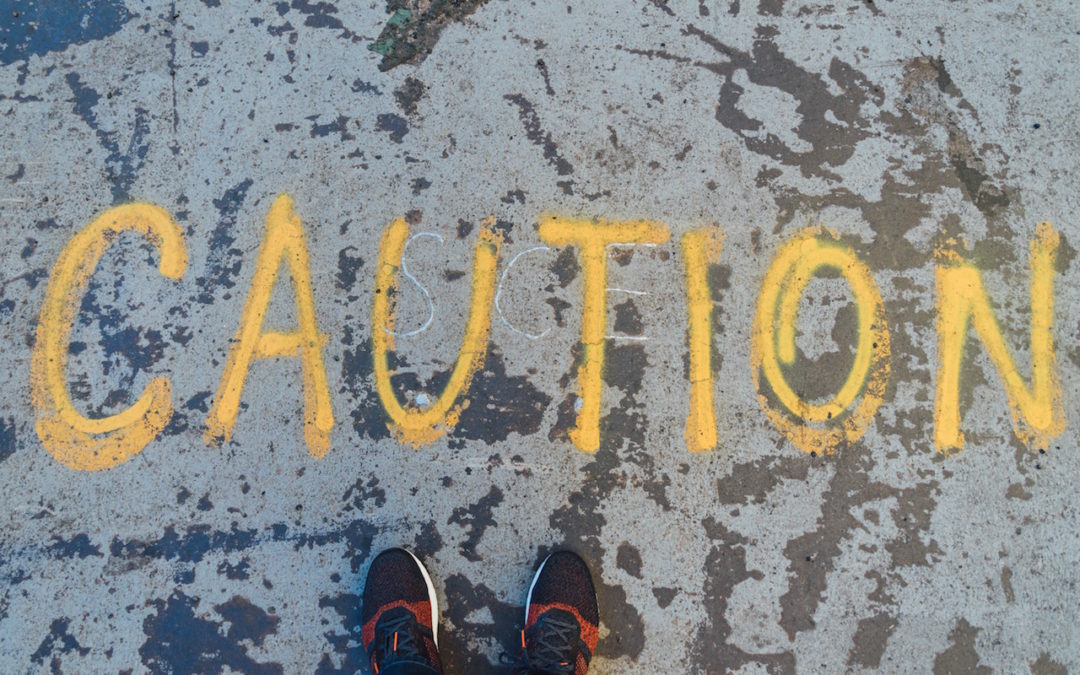9/11 changed us in countless ways, but at its core, the terrorist attacks highlighted the truths we all shy away from: that in many ways, we are powerless. As much as we want to control every part of our lives to keep us feeling safe and secure, 9/11 forced us to admit we are vulnerable.
What is vulnerability?
Brené Brown defines vulnerability as uncertainty, risk, and emotional exposure. She notes that vulnerability is at the core of all emotions and feelings. “To foreclose on our emotional life out of a fear that the costs will be too high is to walk away from the very thing that gives purpose and meaning to living,” she says.
Dr. Brown started her research on shame and vulnerability just 6 months before 9/11/01. Unsurprisingly, she found that since 9/11, our culture has been defined by deep fear.
“It’s like a collective post-traumatic response,” she said in an interview with Oprah. “…there’s a thin film of terror wrapped around us.”
Right after 9/11 your film of terror likely reminded you that you’re not safe enough. As the years have gone on, that film of terror around us has shifted so that in ways we might not even realize, this thin film of terror reminds us of our vulnerability.
While ‘I’m not safe enough’ may have faded a bit, other tales of vulnerability might be competing for your attention such as: I’m not good enough/liked enough/pretty enough/smart enough/ you-name-it enough. I am not enough.
In the same interview, Oprah said that since 9/11, “we’ve shifted away from being on high alert all the time—always afraid of whether it’s the orange or the yellow threat level—to internalizing that fear. And it shows up in the bickering, the snarkiness [that we all do when we live in fear].” You can read more of this interview here.
The Atlantic ran a story yesterday highlighting how much sheer randomness dictated whether people lived or died that day. And randomness, is not something many of us are comfortable with. It defines the thin film of terror wrapped around us.
In the article, Garrett M. Graff points out that the randomness of whether someone lived or died—say because they decided to change shirts before heading to the office and therefore wasn’t in the building—contradict the structure, order, and control we all want in our lives.
This lack of control has led to a cultural shift of controlling whatever we can about our lives—all in an attempt to stave off vulnerability.
“In the years since the attacks, we have ushered ourselves into a hyper-efficient, hyper-connected world—our regimented daily calendars organized in quarter-hour increments, our precise arrival times foretold by Google Maps or the Uber app, our travel routes optimized by Waze, our to-do lists organized by Trello, our perfectly curated lifestyles on Instagram display,” Graff says.
We grasp these digital crutches as tightly as possible, trying to prove to ourselves (and others) that we have everything under control.
“We try so hard to downplay and outright ignore the role chance clearly plays in life, moving through it oblivious to the randomness of fate, controlling everything we can in the hopes that it will help with those things we can’t control,” Graff says.
The cost of perceived certainty and control
When we are constantly hustling to be in control of everything and certain of every outcome, we loose out on the present moment, robbing ourselves of the one thing we can be certain of—what is actually happening in that exact moment. Our spontaneity fades as we turn to our to-do lists, our conversations are half-hearted as we hear another reminder notification distraction, and our pleasure is dulled by the creeping belief that we have to keep hustling to keep ourselves from being vulnerable.
Loosening our grip on perceived certainty and control
Only when we lean in to vulnerability can true connection with those we love and trust happen. When we take our mask of having it all together off, we are able to be more genuine, empathic, and wholehearted. Our fear of vulnerability can be transformed into our desire for authenticity, courage, and connection.
What if I don’t know how to take the mask off?
Then, you aren’t alone. In fact, this is such a common piece of our culture that Brené Brown has spent the last 20 years researching how people who are leading brave, connected, and wholehearted lives do just that. The good news is that she has boiled 20+ years of research into a profound program. Reading her books, “Daring Greatly” and “Rising Strong” are great first steps. If you’re ready to truly put that mask down and change the way you live, love, parent, and lead, check out upcoming Daring Greatly and Rising Strong groups here.


